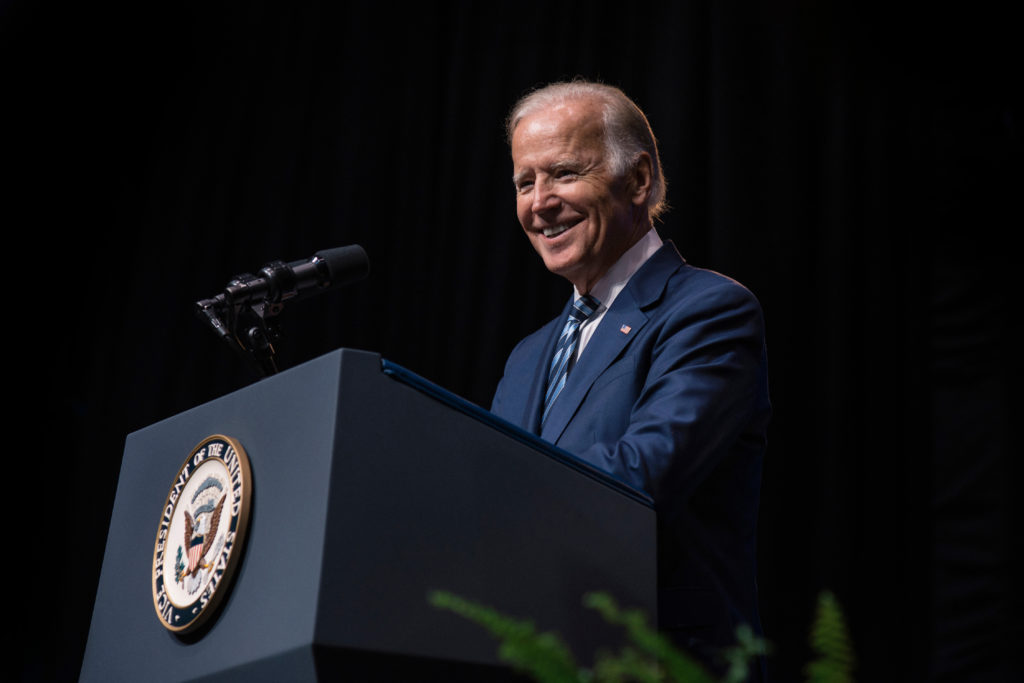Less than two weeks into office, President Joe Biden has signed several executive actions on higher education, a move experts say is a signal of a major shift in higher education policy coming over the next four years.
In his first few days following his inauguration, Biden extended the pause on the collection of federal student loan payments for borrowers, repealed former President Donald Trump’s travel ban preventing many students from Muslim-majority countries from studying in the United States and proposed a bill allowing DACA recipients to apply for permanent residency. Higher education experts said Biden’s actions will have a significant impact on international student recruitment and higher education finances.
Biden’s proposed bill calls for an immediate cancellation of $10,000 in federal student loan debt and forgiveness of up to $10,000 for every year of national or community service, up to five years. The president has indicated that he plans to ask Congress to act on student loan forgiveness and will not tackle the issue with executive action, as some commentators have suggested.
Rachel Gentry, the assistant director of federal relations at the National Association of Student Financial Aid Administrators, said Biden’s key actions in higher education so far have been focused on pandemic relief for students and institutions.
“One thing you have to mention is that his top priority related to higher education now is responding to the pandemic and making sure students in schools have adequate support and guidance to weather the storm,” Gentry said.
The Biden administration’s proposed $1.9 trillion COVID-19 relief plan includes $35 billion for colleges and universities.
“I do think it is safe to say that passing another COVID relief bill that would include funding and additional support for higher education institutions is a top priority for the new administration,” Gentry said. “I think the administration clearly understands that schools and institutions at all levels are really struggling now and need additional support.”
Martin Van Der Werf, the associate director of editorial and postsecondary policy at Georgetown University’s Center on Education and the Workforce, said many universities need money because they were unable to financially prepare for the effects of COVID-19. Universities like GW have taken on several new costs since the pandemic began, from coronavirus testing and contact tracing to modifications permitting social distancing in campus buildings.
Van Der Werf said universities like GW, with relatively large endowments, should increase their payout rates in the short term to fund operations and mitigate the impact of the pandemic.
“I’m of the opinion that endowments are meant to be fiscal cushions for just this kind of thing,” Van Der Werf said.
Officials decided on a payout rate of about 5 percent in fiscal year 2020, consistent with prior years. Administrators are planning a 4.5 percent payout starting this fiscal year, which began on July 1.
One of Biden’s most ambitious education plans calls for public colleges and universities – which would not include GW – to be tuition-free for families with incomes below $125,000. Van Der Werf said moves to make public colleges free would have a significant impact on the higher education landscape, although GW may not face much change as a result of the decision.
“Clearly if college was free then public colleges would see a significant increase in enrollment, and it would have a relatively significant impact on private colleges as well,” Van Der Werf said. “I think a bigger place like GW would be safer because GW has a lot of other different attributes. It is a big research university, urban location and has many programs of study.”
But Biden will face hurdles in trying to enact his plan for public college tuition. Megan Schneider, the senior director of government affairs at the National Association of College and University Business Officers, said she is unsure whether Congress will pass that part of his policy platform, given the narrow margins of Democratic control in both chambers of the body.
“I think it’s too soon to tell whether or not Congress will be able to pass a bill forgiving federal student loans,” Schneider said. “It’s certainly a priority of both the Biden administration and many congressional Democrats, but again, many congressional Republicans are concerned with the cost of such a bill and the slim margins in the House and Senate will likely make it difficult.”
Biden nominated Miguel Cardona to serve as secretary of education and spearhead federal education policy. Cardona, a former teacher and commissioner of education in Connecticut who navigated reopening schools in his home state, has not yet received a confirmation hearing.
Schneider said Cardona’s breadth of experience is a marked and welcome contrast with former Education Secretary Betsy DeVos, who was a businessperson before she served as secretary.
“We were pleased to see an education secretary nominee with actual education experience, and while most of the nominee’s experience is in K-12 education, I have no reason to believe he won’t be fully attentive to the needs of postsecondary education and will hopefully, if confirmed, will build out a support team with extensive higher education experience,” Schneider said.








